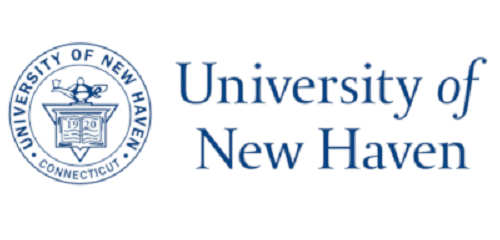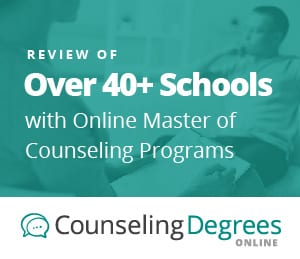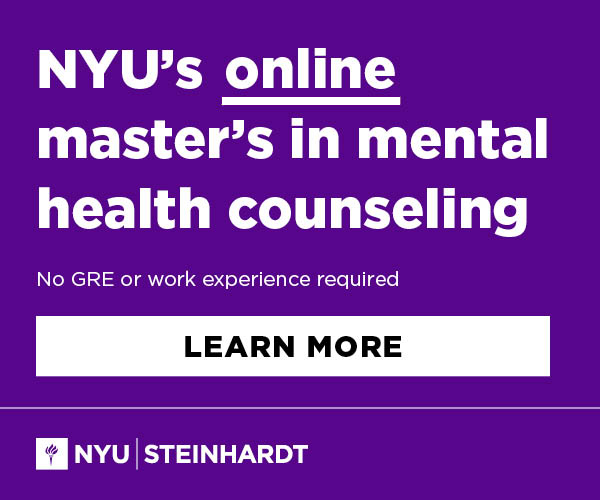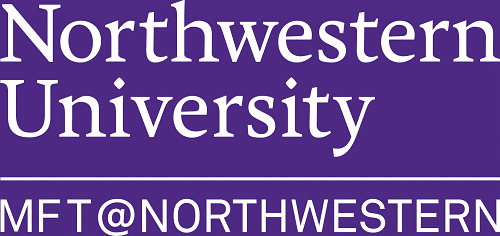 Northwestern University : Master of Science in Marriage and Family Therapy (Complete your COAMFTE-accredited MFT online program in as few as 21 months. No GRE required.)
Northwestern University : Master of Science in Marriage and Family Therapy (Complete your COAMFTE-accredited MFT online program in as few as 21 months. No GRE required.)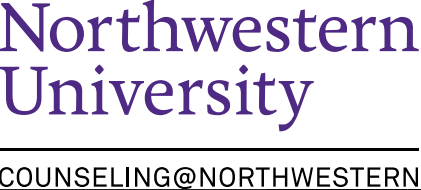 Northwestern University : Online MA in Counseling (CACREP Accredited)
Northwestern University : Online MA in Counseling (CACREP Accredited)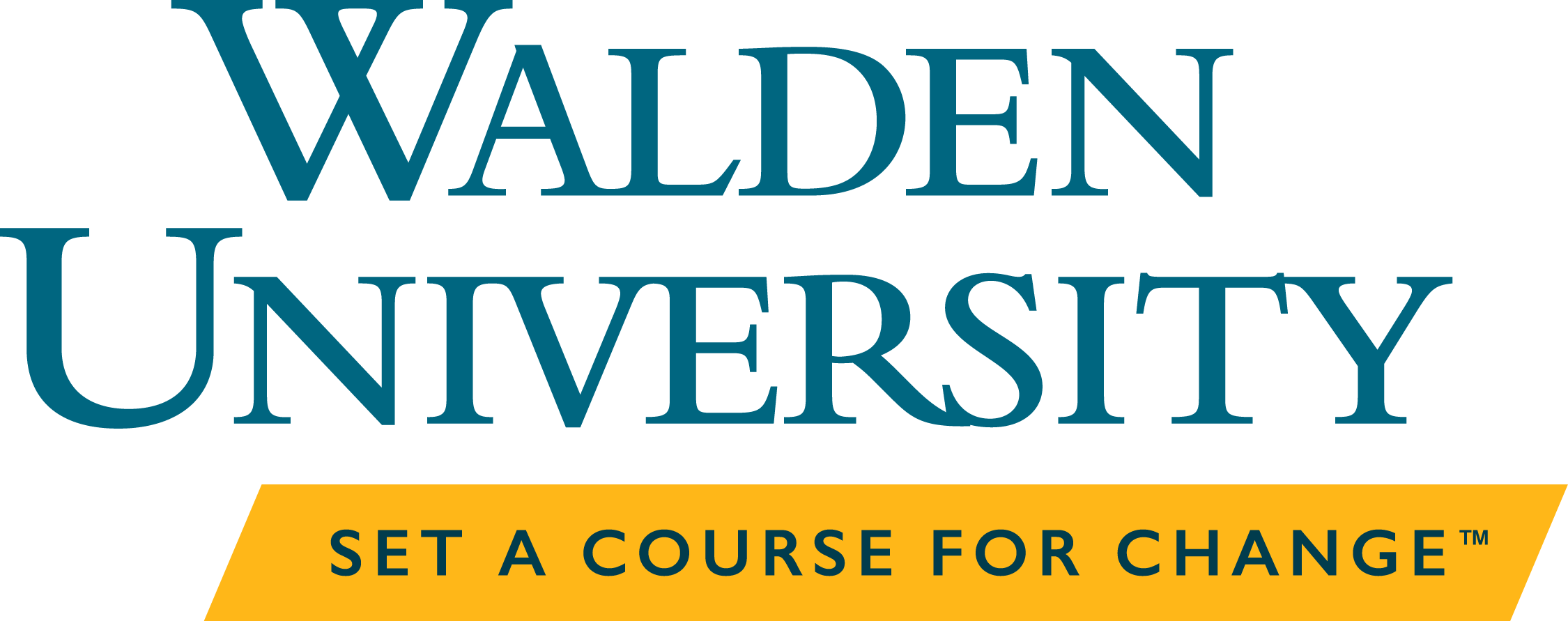 Walden University : MS in School Counseling (CACREP Accredited)
Walden University : MS in School Counseling (CACREP Accredited) Walden University : MS in Clinical Mental Health Counseling (CACREP Accredited, six specializations to choose from)
Walden University : MS in Clinical Mental Health Counseling (CACREP Accredited, six specializations to choose from)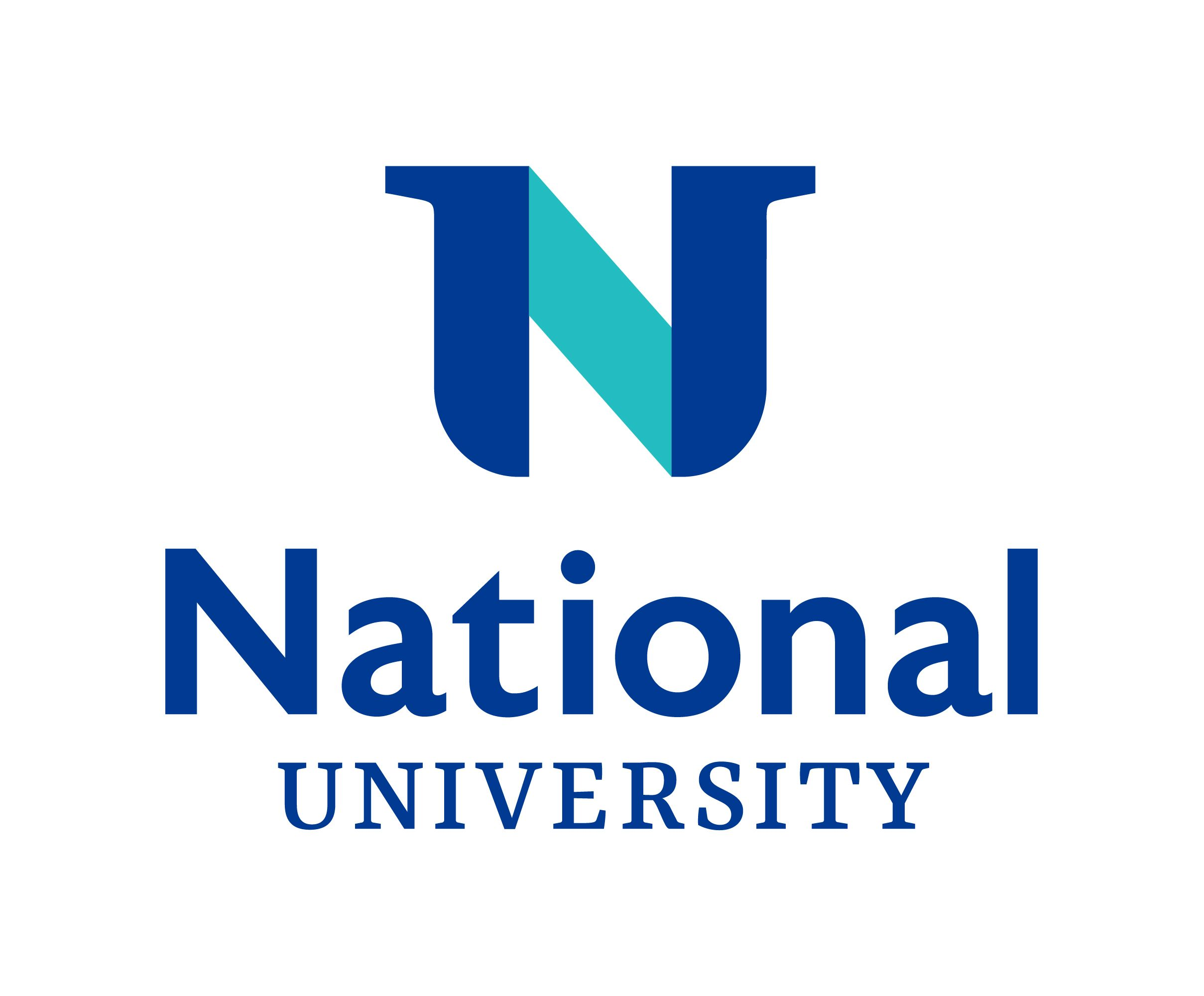 National University : Doctor of Philosophy in Psychology (Accredited. No GRE. Scholarships Available)
National University : Doctor of Philosophy in Psychology (Accredited. No GRE. Scholarships Available)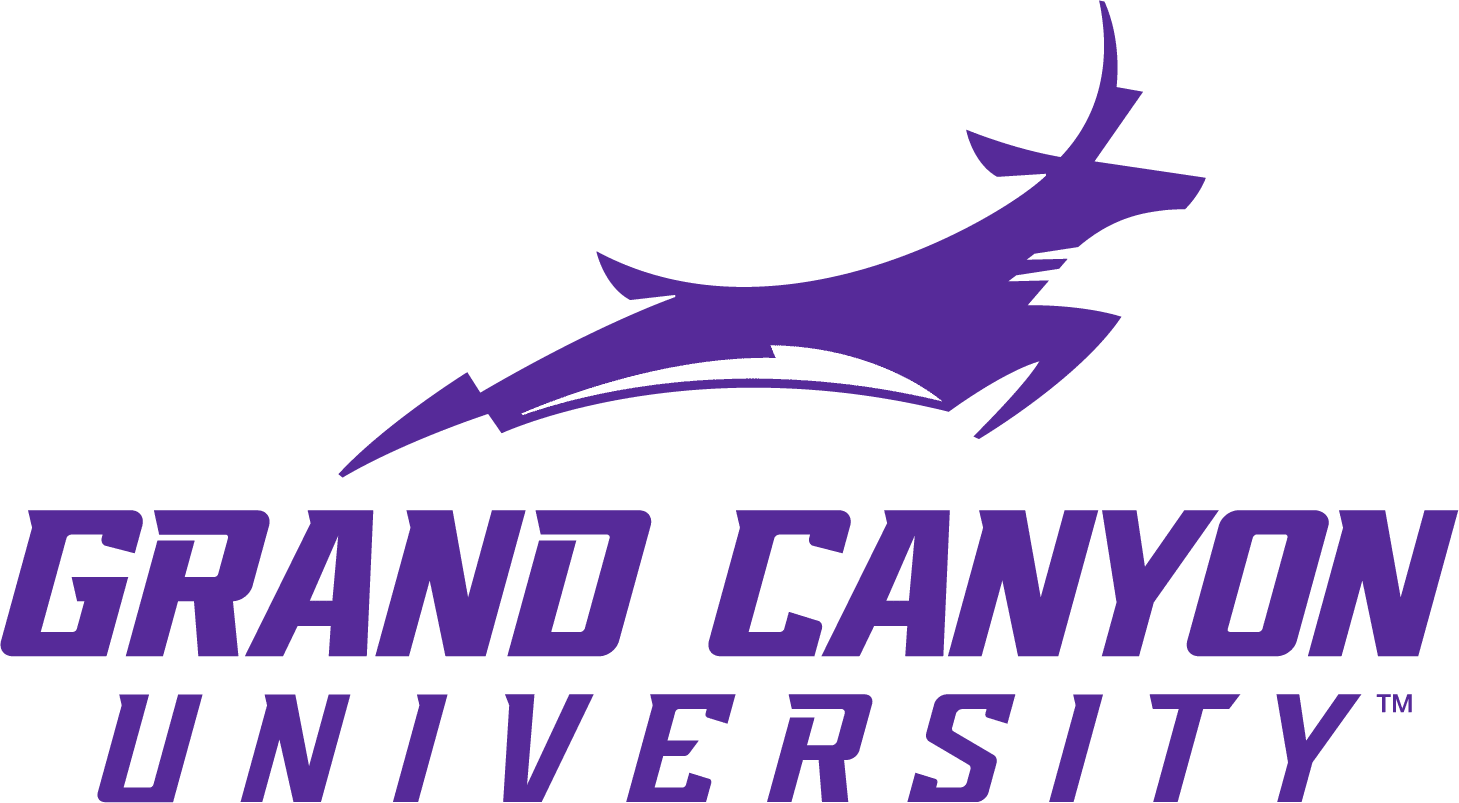 Grand Canyon University : Master's Degree in Counseling (As a private university, GCU has the same in-state and out-of-state tuition.)
Grand Canyon University : Master's Degree in Counseling (As a private university, GCU has the same in-state and out-of-state tuition.) Liberty University : MA: Clinical Mental Health Counseling (CACREP Accredited) (Online with required intensives)
Liberty University : MA: Clinical Mental Health Counseling (CACREP Accredited) (Online with required intensives) Mid-America Christian University (MACU) : Master of Science (MS) in Counseling (100% Online, No GRE Required)
Mid-America Christian University (MACU) : Master of Science (MS) in Counseling (100% Online, No GRE Required) Southern New Hampshire University (SNHU) : Online Psychology Degrees (Bachelors and Masters. Flexible. Affordable. And achievable.)
Southern New Hampshire University (SNHU) : Online Psychology Degrees (Bachelors and Masters. Flexible. Affordable. And achievable.)What is Counseling Psychology?
Through the use of common psychological and counseling techniques, therapies, and life changes, therapists within this discipline can assist their clients with making meaningful changes that have the potential to increase their overall quality of life. Professionals in this field often work with clients that are struggling with addiction, depression, anxiety, or extended grief.
Upcoming students that are intrigued by this field of psychology can pursue training through graduate-level degree programs. Higher education can lead to more in-depth knowledge pertaining to normal and abnormal psychological processes, which can result in more knowledge and expertise with clients in the field.
While the master's route is the most common for upcoming professionals, it can be possible for some students to pursue alternative routes toward a career in this field. Degree programs leading to this career field are listed in the section below.
Consider a Featured Online Counseling Program
| School and Program Information | Online Program? Entry Requirements |
Course Information |
|---|---|---|
| Northwestern University
Master of Science in Marriage and Family Therapy
COAMFTE Accredited |
✔ Online
GRE Not Required Bachelor's Required |
The COAMFTE-accredited MFT@Northwestern is offered by The Family Institute at Northwestern University. Full-time students can complete the program in as few as 21 months. No GRE is required, but applicants must hold an undergraduate degree. Full and part-time tracks available. Learn More |
| Northwestern University
Online MA in Counseling
 CACREP Accredited CACREP Accredited |
✔ Online
GRE Not Required Bachelor's Required |
Prepare to pursue licensure in as few as 18 months Learn MoreFull-time, part-time, and accelerated track options available |
| Walden University
MS in School Counseling
 CACREP Accredited CACREP Accredited |
✔ Online
GRE scores not required |
School counselors help students overcome obstacles and shape successful futures. Walden’s online MS in School Counseling program will give you a solid foundation in school counseling theories, approaches, and best practices while enabling you to gain hands-on experience. Learn More |
| Walden University
MS in Clinical Mental Health Counseling
 CACREP Accredited CACREP Accredited |
✔ Online
GRE scores not required |
Mental health counselors play a valuable role in helping people cope with life’s challenges. Walden’s online MS in Clinical Mental Health Counseling program can help you become the competent, compassionate counselor you know you can be. Learn More |
| National University
Doctor of Philosophy in Psychology
COAMFTE Accredited |
✔ Online
GRE Scores Not Required |
Earn a degree in Counseling Psychology, Gerontology, or Substance-Related and Addictive Disorder Learn More |
| Grand Canyon University
Master's Degree in Counseling
HLC and NASAC Accredited |
✔ Online
|
Clinical Mental Health Counseling master's degree emphases include: Childhood and Adolescence Disorders, Christian Counseling, Marriage and Family Therapy, and Trauma. Designed to meet the academic requirements of the National Board for Certified Counselors for the National Certified Counselor credential, the Certified Clinical Mental Health Counselor credential and the Arizona Board of Behavioral Health Examiners. As a private university, GCU has the same in-state and out-of-state tuition. Learn More |
| Liberty University
MA: Clinical Mental Health Counseling (CACREP Accredited)
 CACREP Accredited CACREP Accredited |
✔ Online
Online with required intensives |
Our CACREP-accredited master’s in counseling degree online can help you become an ethical, well-trained mental health counselor with the knowledge, values, and skills you need to empower others to make positive changes in their lives. Online and on campus. Training Champions for Christ since 1971. Learn More |
| Mid-America Christian University (MACU)
Master of Science (MS) in Counseling
Higher Learning Commission (HLC) |
✔ Online
100% Online |
Expand your impact with an online counseling degree rooted in faith-based practice. Mid-America Christian University offers the largest Master of Science (MS) in Counseling program in Oklahoma, with emphasis areas in addiction and substance abuse, applied behavioral science, clinical mental health counseling, and marriage and family therapy. Explore the online MS in Counseling at MACU. Learn More |
| Southern New Hampshire University (SNHU)
Online Psychology Degrees
Bachelors and Masters NECHE Accredited |
✔ Online
No application fee or GRE/GMAT scores required |
With our unique programs - from child and adolescent development to forensic psychology - you'll be prepared for a wide variety of careers in case management, research, human resources, youth services and social services. Learn More |
*Sponsored Counseling Programs
Online CACREP Accredited programs | Online MPCAC Accredited programs
 Northwestern University - Master of Science in Marriage and Family Therapy (COAMFTE Accredited)
Northwestern University - Master of Science in Marriage and Family Therapy (COAMFTE Accredited)
 Northwestern University - Online MA in Counseling (CACREP Accredited)
Northwestern University - Online MA in Counseling (CACREP Accredited)
 Walden University - MS in School Counseling (CACREP Accredited)
Walden University - MS in School Counseling (CACREP Accredited)
 Walden University - MS in Clinical Mental Health Counseling (CACREP Accredited)
Walden University - MS in Clinical Mental Health Counseling (CACREP Accredited)
 National University - Doctor of Philosophy in Psychology (COAMFTE Accredited)
National University - Doctor of Philosophy in Psychology (COAMFTE Accredited)
 Grand Canyon University - Master's Degree in Counseling (NASAC Accredited)
Grand Canyon University - Master's Degree in Counseling (NASAC Accredited)
 Liberty University - MA: Clinical Mental Health Counseling (CACREP Accredited) (CACREP Accredited)
Liberty University - MA: Clinical Mental Health Counseling (CACREP Accredited) (CACREP Accredited)
 Mid-America Christian University (MACU) - Master of Science (MS) in Counseling (Higher Learning Commission (HLC) Accredited)
Mid-America Christian University (MACU) - Master of Science (MS) in Counseling (Higher Learning Commission (HLC) Accredited)
 Southern New Hampshire University (SNHU) - Online Psychology Degrees (NECHE Accredited)
Southern New Hampshire University (SNHU) - Online Psychology Degrees (NECHE Accredited)
What Degree Levels are There for This Program Area?
As a new collegiate learner, it can be overwhelming to review the different educational paths toward becoming a counseling psychology professional. Our team’s goal is to provide you with straightforward information about the educational paths you can take in this field, as well as information about which path is the most beneficial.
Bachelor’s Degree in Counseling or Psychology
Many students considering this career field begin their educational experience with a Bachelor’s in Psychology or Counseling. Some universities may even offer online Bachelor’s in Counseling Psychology programs as a beginner’s option to gain expertise in this field.
Licensure for psychologists and counselors cannot be obtained at the bachelor’s level, so your involvement in these undergraduate programs should be for building foundation knowledge for later learning at the graduate level. Once you have completed your 4-year bachelor’s program, you can move forward to a master’s program of your choice.
Master’s in Counseling Psychology
The most popular degree program for upcoming counseling psychology specialists is the online Master in Counseling Psychology degree. This program can be found in many different formats, with some offering further specializations in specific treatment groups.
Counseling-focused programs that lead to licensure are often accredited by the Council for Accreditation of Counseling and Related Educational Programs (CACREP). This agency is the leading source of reliability and accuracy for counseling programs.
Online Master’s in Counseling Psychology Programs
The master’s level is generally the most common option for upcoming counseling psychology professionals, primarily because this is the minimum degree level needed for licensing. The online master’s can be an even more convenient option for students that are in need of flexibility during their learning experience.
Self Study, Research with Online Courses
Online Master’s in Counseling Psychology programs can provide students with virtual courses that involve self-study, research, critical thinking, and group activities. The benefits to taking courses online can include increased independence, strength in problem-solving, and growth in self-discipline.
Since more and more students may be balancing higher education with a full-time career, many colleges have recognized the need for more flexible online degree programs. A current search of available programs may show that you can choose from a number of reliable online programs.
Multiple Online Programs
During our search, our team located many different online Master in Counseling Psychology programs for interested learners. The Chicago School of Professional Psychology currently provides a few different options for incoming learners considering different specialized paths.
The online Master’s in Counseling Psychology at the Chicago School is available with specializations in Addiction Disorders Treatment, Child and Adolescent Treatment, and Trauma and Crisis Intervention. Any of these specializations could provide specialized training for specific groups in the psychological population.
Consider Specialty Tracks
The University of Missouri offers a multi-dimensional degree program titled the online Master’s in Education in Educational, School, and Counseling Psychology. This program can provide learners with the opportunity to engage in learning about psychological, emotional, and educational counseling for students in public school systems.
This unique degree program can also provide you with the training you need to properly analyze and treat various emotional and social diagnoses in the educational setting. Specializations offered for this program include Positive Coaching, Mental Health Practices in Schools, and Student Learning and Well-Being.
Master of Counseling Psychology Curriculum
Before you submit your application to online Master’s in Counseling Psychology degree programs, you should engage in a thorough review of each one and its components. Reviewing the curriculum and expectations of a degree program can help you prepare for the road ahead and provide you with valuable insight into the core of the subject matter that will be covered.
The courses that make up your master’s programs may be general in nature or encompass topics related specifically to your chosen specialization. Overall, the courses may focus on the same core subjects so that you enter the field with the skills you need to succeed. Some of the most common courses in these programs include:
- Assessment and Psychotherapy: Since this degree program focuses on the psychological aspects of professional counseling, you may see psychology-focused courses like Assessment and Psychotherapy. This course delves into the person-centered concepts of psychotherapy, as well as other common approaches like Gestalt and transpersonal.
- Evaluation and Treatment of Addictions: This is another common course found in multiple degree programs. This course can outline some of the popular methods for analyzing and assessing client addiction, developing a relevant treatment plan, and follow-up services for clients in the generalized counseling setting and within treatment centers.
- Psychology of Aging and Social Psychology: The Psychology of Aging, Social Psychology, and Abnormal Psychology may also be courses included within your Counseling Psychology degree program. These courses seek to educate students on the psychological changes that take place through natural aging, social interaction and nurturing, and life experiences or physical development.
If you have a very specific career goal in mind, reviewing the curriculum for counseling psychology online degree programs can help you identify which school is best suited to your needs.
What Can You Do with a Master’s Degree in Counseling Psychology?
The combination of a high-quality educational path, involvement in professional organizations, and field experience can create a powerful foundation for expertise in the field. As you take your knowledge and motivation into the profession, you might be searching for job offers that encompass your desires as an incoming counselor.
Potential Career Paths
Some graduates and licensees in the field of counseling can utilize their knowledge of counseling psychology in general counseling practice. Careers in this area can be found in mental health agencies, healthcare organizations, and even in private practice.
Counseling psychology professionals may even make use of their skills and expertise in an educational setting. Specialized training and licensure can lead you into school counselor positions within school systems in your area.
One of the most intriguing aspects of counseling psychology is that this specialization can be applied to many specific career areas. Addictions treatment, marriage and family therapy, individual or group therapy, and even sports psychology are options for you to consider as you transition into this incredible career field.
Salaries for Counseling Psychology Professionals
Your potential salary can differ significantly based on your location, years of experience, and counseling specialization. Consider these median salaries for different types of counselors, according to 2021 data from the U.S. Bureau of Labor Statistics:
- Substance abuse, behavioral disorder, and mental health counselors: $48,520
- Rehabilitation counselors: $38,560
- Marriage and family therapists: $49,980
- School and career counselors: $60,510
Keep in mind that the specific type of employer can also cause substantial differences in yearly earnings. For example, according to the U.S. Bureau of Labor Statistics, counselors in elementary and secondary schools earn a median salary of $63,460, compared to $49,430 for counselors at colleges, universities, and professional schools.
Ph.D. in Counseling Psychology
If you are interested in moving even higher with your educational journey, you may want to consider Doctorate in Counseling Psychology programs. These programs can provide you with more insight into the research, leadership, and expertise available in this field and can potentially lead to even more unique career options after graduation.
Ph.D. in Counseling Psychology Online
If you are one of the many students considering becoming a licensed psychologist, online Ph.D. programs in counseling psychology may be the degree of choice for your career goals. These 4-year programs often include online learning, research, and in-person residencies throughout the degree process.
Learn more about doctorate level counseling and psychology programs:
Ph.D. in Counseling Psychology Curriculum
Most counseling psychology programs require students to explore familiar subjects in more depth. Some common courses in these programs include:
- Career Development and Counseling: Students explore the major theories of career development, choice, and adjustment.
- Psychology of Immigration: This class focuses on the psychological implications of immigration, including the emotional responses and trauma that can occur.
- Ethical and Professional Issues in Counseling Psychology: In this course, students learn about ethical and professional behavior and practices that must be maintained by counselors.
- Social justice and Systems Change: In this class, students learn about the psychological aspects of issues related to social justice.
Ph.D. programs in counseling psychology generally also require students to complete a practicum involving clinical training and the completion and defense of a dissertation. Some also involve a comprehensive assessment in the form of an exam.
What Can You Do with a Ph.D. in Counseling Psychology?
The job opportunities available to students who graduate from master’s in counseling psychology programs are also applicable to students who complete a Ph.D. program. However, receiving your Ph.D. may also open doors to additional careers.
Career Paths
After graduating from a counseling psychology Ph.D. program, you may qualify for higher-level positions in the field. For example, you may be a strong candidate for a position as an administrator in a mental health facility, hospital, or government agency.
Some graduates of counseling psychology doctoral programs also enter the world of academia and research. With a Ph.D., you may be qualified to become a lecturer, professor, department head, or dean at a college or university. Tenure-track positions are especially sought-after because they offer excellent job security.
Salaries
After graduating with a Ph.D. in counseling psychology, you may be well-positioned to pursue careers with strong earning potential. According to the U.S. Bureau of Labor Statistics, as of May 2021, the median annual salaries for common counseling psychology careers were:
- Postsecondary psychology teachers: $77,860
- Postsecondary education administrators: $96,910
- Medical and health services managers: $101,340
- School psychologists: $78,780
- Clinical and counseling psychologists: $82,510
You may also choose to pursue a career in private practice or as a counselor. The salaries for these positions may initially be similar to those for students with master’s degrees, but they are likely to grow significantly over time due to your academic and professional accomplishments.
Most Important Organizations To Know
As a prospective employee in the field of counseling or psychology, it can be beneficial to become knowledgeable and involved in professional organizations. Some professionals even go on to become members of multiple organizations as a means of gaining insight into different specializations and concentrations in their general fields.
One of the largest and most popular professional organizations in the field of counseling is the American Counseling Organization. Joining this organization can help you connect with counselors in many different specialized practice areas, including Counseling Psychology.
The American Psychological Association can also be an intriguing professional organization for upcoming counseling psychologists. This organization can provide you with resources, learning materials, and professional support throughout your career.
Within the American Psychology Association, the Society of Counseling Psychology focuses specifically on this unique career field. Professionals, students, and research professionals can share knowledge, current trends, and changes in the area of counseling psychology.
How to Become a Clinical Psychologist
Clinical psychologists use theories related to therapy and counseling to provide services to patients. They often work in hospitals, schools, and other healthcare facilities. Becoming a clinical psychologist requires a combination of education, training, and professional experience.
Education
Although there are some employers that hire clinical psychologists with master’s degrees, most require students to have completed a doctoral program in psychology. In general, students spend between 8 and 12 years completing their bachelor’s, master’s, and doctoral degrees before obtaining licensure as clinical psychologists.
Pre-Professional Experience
Depending on the state where you intend to become licensed, you may need to complete a postdoctoral fellowship prior to obtaining licensure. This requires that you complete a certain number of clinical hours before you are eligible to become licensed as a clinical psychologist. While specific requirements vary, most graduates complete their postdoctoral fellowship in one to two years.
Clinical Psychology Licensure
Once you have obtained your degree and finished any required fellowships, the final step toward becoming a clinical psychologist is obtaining licensure. To do so, you will need to meet the minimum score requirement on a lengthy exam that covers eight content areas.
Known as the Examination for Professional Practice in Psychology, the exam is administered over a period of four hours and fifteen minutes. According to the American Psychological Association, it is meant to evaluate your foundational knowledge of psychology and includes 225 questions related to everything you learned over the course of your graduate studies.
Related Careers: How to Become a Counseling Psychologist







